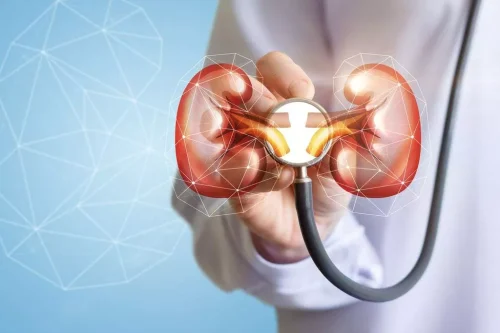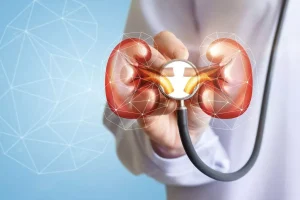Does Alcohol Weaken the Immune System? Yes, If You Drink Too Much

A single miRNA can target hundreds of mRNA transcripts, and a single mRNA transcript simultaneously can be targeted by more than one miRNA, ensuring fine-tuned and/or redundant control over a large number of biological functions. Epigenetic modifications are chemical changes that occur within a genome without changing the DNA sequence. Both regulatory mechanisms related to miRNA and epigenetic mechanisms are interrelated (see figure 3). Thus, several miRNAs themselves are regulated epigenetically but also are capable of targeting genes that control epigenetic pathways (e.g., polycomb group-related genes and histone deacetylase). Studies have identified ethanol-mediated changes in both miRNA abundance (Miranda et al. 2010; Pietrzykowski 2010) and epigenetic modifications within PBMCs (Biermann et al. 2009; Bleich and Hillemacher 2009; Bonsch et al. 2006). However, very few studies have examined ethanol-induced changes in gene expression and regulation within specific immune-cell subsets.

Stress
But unhealthy factors, like stress, smoking, or drinking alcohol, can be taxing for your immune system and make it harder for it to fight off infection. The spike in alcohol sales has alarmed health experts and officials around the world, who are concerned that increased drinking could make people even more vulnerable to the respiratory disease. Heavy drinking can also lead to a host of health concerns, like brain damage, heart disease, cirrhosis of the liver and even certain kinds of cancer. Similarly, chronic consumption of 18 percent ethanol in water for 31 weeks resulted in impaired antigen-specific CD8 T-cell responses following inoculation with Listeria monocytogenes (Gurung et al. 2009).
Impact of AUD on T Cells
Your body releases certain proteins that help the immune system, called cytokines, only during sleep. Understanding how alcohol affects the mind, body, and overall health can help you make the most informed decisions about your consumption habits. If you’re concerned with your alcohol consumption and attitude toward drinking, talk to a healthcare provider as a first step. According to the Centers for Disease Control and Prevention (CDC), 12 ounces of beer, 5 ounces of wine, and 1.5 ounces of 80-proof alcohol constitute one drink. In people assigned female at birth, consuming more than four drinks in one sitting is considered binge drinking. However, there may be legal, financial, or relational consequences for drinking heavily.
How alcohol impacts the gut
These changes in turn compromise the organism’s ability to respond to pathogens and contribute to increased susceptibility to infections. Numerous analyses also have evaluated the effects of ethanol exposure on the development of B cells. Moreover, these B-cell subpopulations did not recover can alcohol lower your immune system to normal levels until 3 to 4 weeks of life (Moscatello et al. 1999; Wolcott et al. 1995). Similarly, ONP cells isolated from newborn mice and cultured in vitro in the presence of 100 mM ethanol for 12 days failed to respond to IL-7 and commit to the B lineage, suggesting intrinsic defects (Wang et al. 2011).


T-cell activation was assessed by measuring the expression of human leukocyte antigen (HLA)-DR on the patient’s CD8 cells. HLAs are proteins found on the surface of various cells that present antigens to the TCR on T cells to induce an immune response. The alcohol-related decrease in peripheral B cells primarily seems to be mediated by a decrease in the frequency of the B-2 B cells.
- Her nutrition philosophy is to dig deeper and identify the root causes of people’s health concerns using a holistic, integrative and functional approach.
- Depending on how much and how often you drink, these effects can impact your health and quality of life.
- With continued alcohol use, steatotic liver disease can lead to liver fibrosis.
- “Drinking alcohol in large quantities even just for a short period of time — like binge drinking — can be bad for your health and your immune system,” says Favini.
The studies found that when animals consumed ethanol before BCG vaccination, they were not protected against a subsequent pulmonary challenge with M. In contrast, mice that consumed ethanol after the BCG vaccination were protected against a subsequent M. Taken together, these data suggest that chronic ethanol exposure interferes with immunity to new antigens but not with immunity established before alcohol consumption. Chronic alcohol consumption reduces B-cell numbers, decreases antigen-specific antibody responses, increases the production of auto-antibodies, and interferes with B-cell development and maturation. However, more recent research warns against using alcohol as a strategy for improving heart health, says Andrews. “Individuals vary in their cardiovascular responses to alcohol, and even low levels of drinking can increase the risk of hypertension and heart disease for some people,” she adds.
- Abstinence partially restored antibody responses against hepatitis antigens in a mouse model (Encke and Wands 2000).
- The Reframe app equips you with the knowledge and skills you need to not only survive drinking less, but to thrive while you navigate the journey.
- Sunlight may energize special cells in your immune system called T-cells that help fight infection.
- Other chemicals in e-liquids seem to suppress your immune response, especially when you inhale them through vaping.
- Although important for initiating inflammatory responses to bacteria, continued production of this chemical can damage tissue.
This is our immune system, compromised and lagging, all because alcohol distracted our guards. “Anyone with chronic liver conditions should be avoiding alcohol, for example, people with hepatitis, nonalcoholic fatty liver disease, liver inflammation, and any condition that could affect liver function would be a reason to avoid alcohol,” notes Favini. As described earlier for adult humans, alcohol can lead to increases in Ig levels during development, even if the numbers of mature B cells decrease. Thus, maternal alcohol consumption during pregnancy (12 mg/week for most of the pregnancy) increased IgE levels in the umbilical cord blood of the infants (Bjerke et al. 1994). Although red wine is often celebrated for its heart-protective properties, drinking alcohol isn’t risk-free. Excessive alcohol intake, in particular, can adversely impact various aspects of your well-being, from your immediate safety to your long-term health.
- In reality, there’s no evidence that drinking beer (or your alcoholic beverages of choice) actually contributes to belly fat.
- Therefore, you should always speak to your health care provider before consuming alcohol for heart health.
- Alcohol — just like everything else we ingest — gets metabolized in our body.
- Alcohol can either activate or suppress the immune system depending on, for example, how much is consumed and how concentrated it is in the various tissues and organs.
In contrast, men who consumed a similarly moderate amount of beer for the same period exhibited a significant increase in basophils alone. Alcohol alters the makeup of your gut microbiome — home to trillions of microorganisms performing several crucial roles for your health — and affects those microorganisms’ ability to support your immune system. It seems that drinking alcohol may also damage the immune cells that line the intestines and serve as the first line of defense against bacteria and viruses. Alcohol can suppress our innate immunity, which serves as the body’s frontline defense. This means infections like colds or the flu might last longer if alcohol has been consumed, as the immune cells’ ability to combat these pathogens is hampered.

The number of B-1a cells also seems to decline, but this decrease is accompanied by a relative increase in the percentage of B-1b cells (Cook et al. 1996). The loss of B-2 cells may explain why alcoholics often cannot respond adequately to new antigens. The relative increase in B-1b cells also may lead to autoantibody production, especially of the IgM and IgA classes (which is discussed below). Here’s how the long-term consequences of excessive drinking can gradually take a toll on your health.

